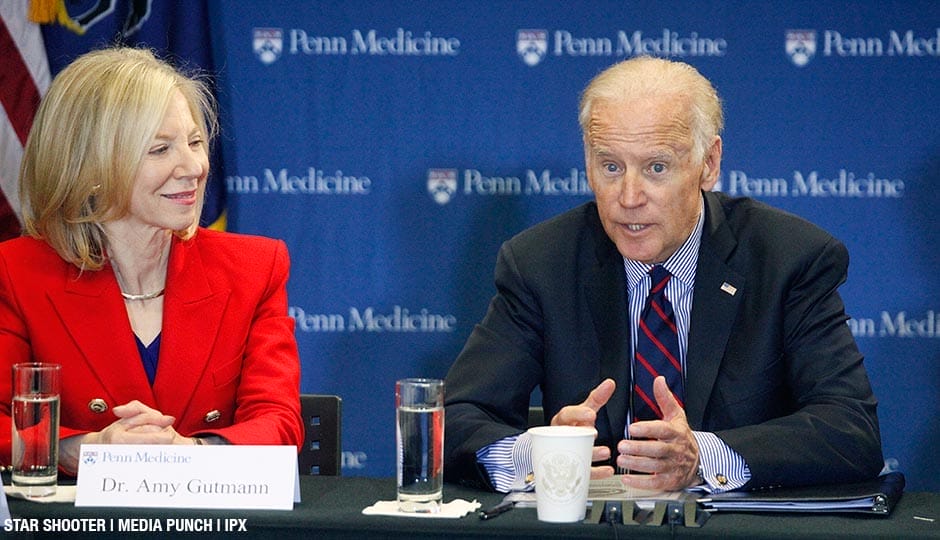Last week I had the privilege of discussing former Vice President Joe Biden’s “Cancer Moonshot” on our “Business of Health Care” show on Wharton’s SiriusXM channel. Our guests were Dinah Singer, acting deputy director of the National Cancer Institute, and Chi Van Dang, director of the University of Pennsylvania’s Abramson Cancer Center. Both are members of a blue ribbon panel of cancer experts created to assist with the development and execution of the Cancer Moonshot’s goals and initiatives.
The Cancer Moonshot is one of the legacies of Vice President Biden, whose son Beau succumbed to brain cancer in 2015. As part of the recently passed 21st Century Cures Act—a $6.3 billion bill intended to accelerate the approval of breakthrough cures for a number of conditions—the Moonshot is expected to receive $1.8 billion in funding. (As an aside, cancer has always been funded disproportionately to other diseases. The main reasons are: It touches practically everyone, there are many unknowns on how to prevent and cure it, and its course of therapy can be grueling. In essence, cancer scares people.)
The main initiatives for the Cancer Moonshot are:
- Establishing a network of patient involvement in clinical trials. Currently only four percent of all cancer patients are involved in such trials. Simply put, without clinical trials, cancer care cannot improve.
- Creating a translational science network devoted exclusively to immunotherapy. Immunotherapy in its simplest sense helps a patient’s immune system recognize the cancer so it can fight it. Cancer as a disease tricks the immune system into not attacking it. Immunotherapy reverses this. Immunotherapy is one of the more promising therapies to come around in decades and has produced some very promising results early on. Penn Medicine’s own Carl June is one of the pioneers of this therapy.
- Developing ways to overcome cancer’s resistance to therapy. Some cancer treatments work initially, but the cancer eventually becomes resistant to them. We first need to understand how this happens before therapies can be developed to address it.
- Building a national cancer data ecosystem. This is one of the more important initiatives. It requires experts to talk with one another and share data willingly for the advancement of science. Issues to overcome include patent protection, sharing of trade secrets and sharing of data that took months and significant money to acquire. It is a paradigm shift in how others can and should work together for the greater good.
- Intensifying research on major drivers of childhood cancers. Pediatric cancers are generally caused by one or two genetic mutations. Adult cancers, on the other hand, are often the result of many more and different genetic mutations. While this initiative may seem easy, Dr. Singer cautioned that we have to unravel and understand the genetic mutation before anything can be done.
- Minimizing the side effects of cancer treatments. Due to the severity of the side effects of cancer treatments, many do not finish their therapies. Dr. Dang stated this as one of the main reasons why cancer treatments do not work. If we can minimize these side effects, we can get patients to finish their therapies.
- Expanding use of prevention and early detection. While curative treatments can be exciting, spending on prevention/early detection may hold even more promise and actually cost the system less.
- Mining data to predict future outcomes. As part of this initiative, Dr. Dang mentioned that the University of Pennsylvania recently uploaded the genetic makeup of 700+ lung cancer patients. This data can be used in the future to understand: which therapies do and do not work, side-effects, early detection, cancer resistance, etc. Data such as this may be shared with others to effectively diagnosed and treat these types of cancers.
- Developing a 3-D atlas. Once an atlas is developed, it can be used to determine how the cancer interacts with the body’s immune system and how to attack it.
- Developing new cancer technologies. These new technologies include non-invasive means of diagnosing cancers easily and treating them.
The above are very aggressive recommendations, which, according to Dr. Singer, will continue to be monitored and reported on to the public over time. It is our intention to re-visit with both Dr. Singer and Dr. Dang on “The Business of Health Care” for updates.


























